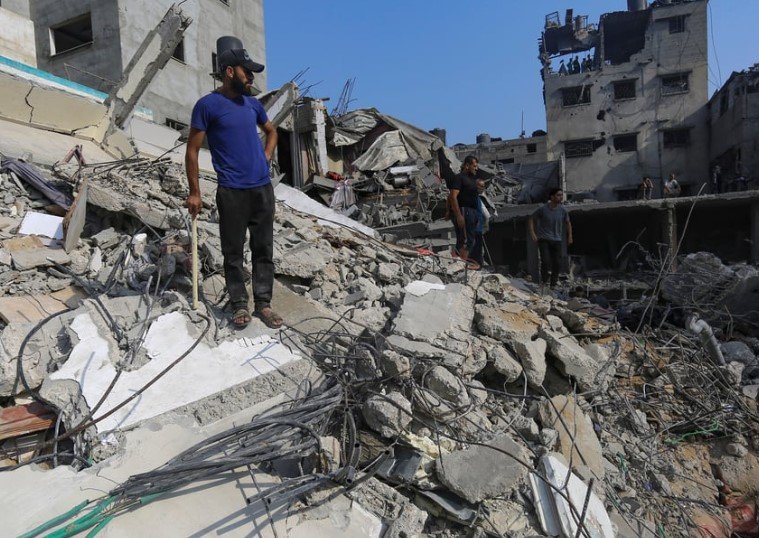Israel is facing mounting criticism after halting all humanitarian aid to Gaza, a move it says is meant to pressure Hamas into accepting a new ceasefire proposal. Egypt condemned the decision as “starvation as a weapon,” while Saudi Arabia labeled it “a tool of extortion.”
Israel Shuts Down Aid Routes, Raising Fears of Humanitarian Crisis
On Sunday, Israel announced it had blocked all food and humanitarian supplies from entering Gaza, warning that “additional consequences” would follow if Hamas rejected the latest ceasefire proposal. The decision has drawn outrage from regional players and humanitarian organizations alike, as it exacerbates an already dire situation in the war-torn enclave.
Egypt, which has played a crucial role in brokering ceasefires in previous conflicts, denounced Israel’s move as a “flagrant and clear violation of humanitarian law.” Saudi Arabia followed suit, calling the aid cutoff “a tool of extortion” aimed at coercing Hamas into accepting terms that remain undisclosed.

Palestinians in Gaza are already experiencing severe shortages of food, medicine, and clean water. With the Rafah crossing into Egypt and key border points with Israel sealed, humanitarian agencies warn that the blockade will lead to widespread famine and suffering.
Hamas Rejects Proposal, Calls Move ‘Collective Punishment’
Hamas officials dismissed the Israeli ultimatum, calling it an attempt to enforce “collective punishment” on Gaza’s population.
- A Hamas spokesperson accused Israel of “using hunger as a weapon of war,” saying the blockade would not force the group into an unfavorable agreement.
- Reports indicate that the ceasefire proposal includes provisions for a temporary truce and a phased hostage exchange, but Hamas remains skeptical of Israel’s commitment to long-term peace.
- Israeli officials, however, argue that Hamas is the one prolonging the conflict by refusing to make concessions.
Despite multiple rounds of negotiations mediated by Egypt, Qatar, and the United States, a breakthrough remains elusive. Observers fear that without immediate de-escalation, the conflict could spiral into another prolonged period of violence.
International Outcry and Diplomatic Pressure Mount
The international response has been swift, with multiple countries and humanitarian organizations urging Israel to lift the blockade.
- The United Nations called the move “unacceptable” and warned of “catastrophic consequences” for civilians.
- The European Union expressed “deep concern” and emphasized the need for “unhindered humanitarian access.”
- The United States, a key ally of Israel, has urged both sides to return to negotiations, though it stopped short of explicitly condemning the aid cutoff.
The situation is further complicated by reports of escalating violence along Gaza’s borders, with sporadic rocket fire and retaliatory airstrikes threatening to unravel the fragile ceasefire efforts.
Regional Mediation Efforts at Risk of Collapse
With tensions running high, diplomatic efforts to broker a lasting ceasefire are now in jeopardy.
- Egypt, historically a key intermediary, has warned that continued aggression could jeopardize future negotiations.
- Qatar, another major mediator, has called for “urgent intervention” to prevent a humanitarian catastrophe.
- Saudi Arabia has ramped up diplomatic efforts, seeking international backing to pressure Israel into reversing its stance.
While past conflicts have seen similar cycles of escalation and de-escalation, analysts warn that the current situation is particularly precarious due to the sheer scale of destruction in Gaza and the deepening humanitarian crisis.
What Comes Next?
The coming days will be critical in determining whether the ceasefire talks can be salvaged or if Gaza will plunge further into turmoil.
- If Hamas remains defiant, Israel could escalate its military operations.
- If international pressure mounts, Israel may be forced to reconsider its blockade.
- If humanitarian conditions worsen significantly, global intervention could become unavoidable.
For now, Gaza’s 2.3 million residents remain trapped in an increasingly desperate situation, with no clear resolution in sight.
